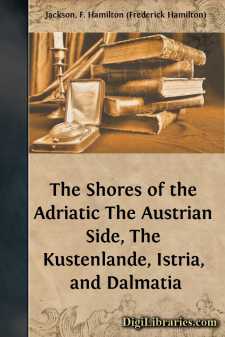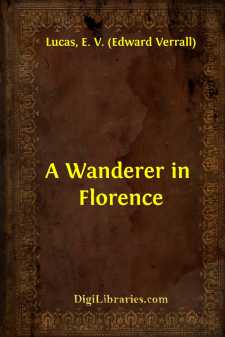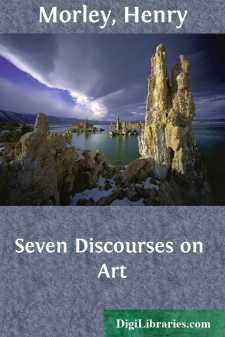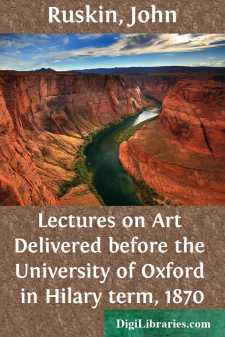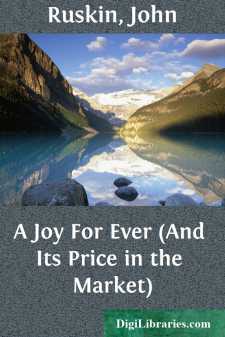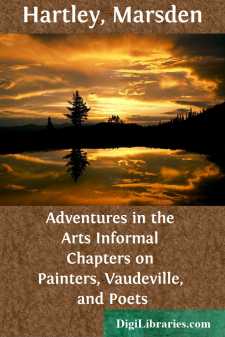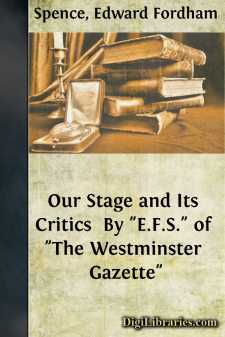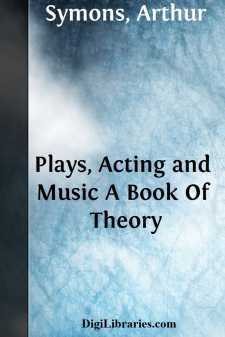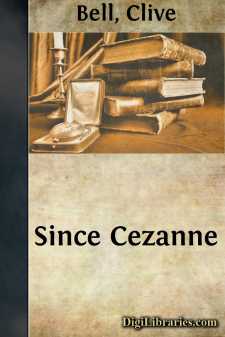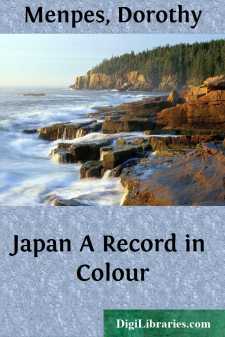Art
- African 1
- Asian 2
- Collecting 1
- Collections, Catalogs, Exhibitions 6
- Criticism 2
- European 8
- General 14
- History 11
- Middle Eastern 1
- Sculpture 4
Art Books
Sort by:
PREFACE This volume is complementary to that dealing with the Italian side of the Adriatic, and follows much the same lines. It has not been thought necessary to repeat what appeared there about the sea itself, but some further details on the subject have been added in an introductory chapter. The concluding chapter treats of the influence which the two coasts exerted on each other, and contains some...
more...
CHAPTER I The Duomo I: Its Construction The City of the Miracle—The Marble Companions—Twilight andImmensity—Arnolfo di Cambio—Dante's seat—Ruskin's "Shepherd"—Giottothe various—Giotto's fun—The indomitable Brunelleschi—Makers ofFlorence—The present façade. All visitors to Florence make first for the Duomo. Let us do the same. The real name of the Duomo is the...
more...
by:
Henry Morley
INTRODUCTION It is a happy memory that associates the foundation of our Royal Academy with the delivery of these inaugural discourses by Sir Joshua Reynolds, on the opening of the schools, and at the first annual meetings for the distribution of its prizes. They laid down principles of art from the point of view of a man of genius who had made his power felt, and with the clear good sense which is...
more...
by:
John Ruskin
PREFACE TO THE EDITION OF 1887. The following lectures were the most important piece of my literary work done with unabated power, best motive, and happiest concurrence of circumstance. They were written and delivered while my mother yet lived, and had vividest sympathy in all I was attempting;—while also my friends put unbroken trust in me, and the course of study I had followed seemed to fit me for...
more...
by:
John Ruskin
LECTURE I. THE DISCOVERY AND APPLICATION OF ART. A Lecture delivered at Manchester, July 10, 1857. 1. Among the various characteristics of the age in which we live, as compared with other ages of this not yet very experienced world, one of the most notable appears to me to be the just and wholesome contempt in which we hold poverty. I repeat, the just and wholesome contempt; though I see that some of...
more...
by:
Marsden Hartley
Perhaps the most important part of Criticism is the fact that it presents to the creator a problem which is never solved. Criticism is to him a perpetual Presence: or perhaps a ghost which he will not succeed in laying. If he could satisfy his mind that Criticism was a certain thing: a good thing or a bad, a proper presence or an irrelevant, he could psychologically dispose of it. But he can not. For...
more...
CHAPTER I THE DRAMATIC CRITIC His Qualifications The production of a play in the Russian tongue renders topical a phrase once used, not unhappily, by Mr Cecil Raleigh concerning the qualifications of the dramatic critic. After listening to a somewhat extravagant speech about the duties of the critic, he said that the dramatic critic ought, apparently, to be a "polyglot archangel." During the...
more...
by:
Arthur Symons
INTRODUCTION[2][3] After seeing a ballet, a farce, and the fragment of an opera performed by the marionettes at the Costanzi Theatre in Rome, I am inclined to ask myself why we require the intervention of any less perfect medium between the meaning of a piece, as the author conceived it, and that other meaning which it derives from our reception of it. The living actor, even when he condescends to...
more...
by:
Clive Bell
SINCE CÉZANNE With anyone who concludes that this preliminary essay is merely to justify the rather appetizing title of my book I shall be at no pains to quarrel. If privately I think it does more, publicly I shall not avow it. Historically and critically, I admit, the thing is as slight as a sketch contained in five-and-thirty pages must be, and certainly it adds nothing to what I have said, in the...
more...
by:
Dorothy Menpes
CHAPTER I ART AND THE DRAMA I always agree with that man who said, “Let me make the nation’s songs and I care not who frames her laws,” or words to that effect, for, in my opinion, nothing so well indicates national character or so keenly accentuates the difference between individuals and nations as the way in which they spend their leisure hours; and the theatres of Japan are thoroughly typical...
more...


